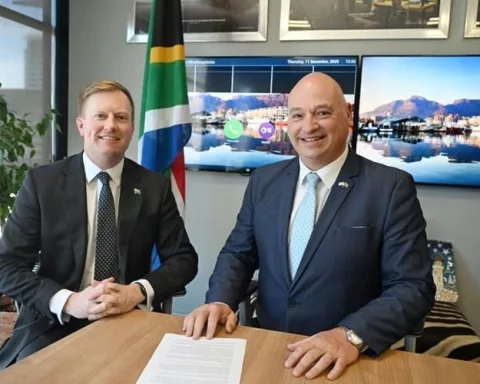Cape Town is inviting its residents to take part in shaping the city’s future through urban planning. There are public meetings on October 8 and 10, 2024, where everyone can share their thoughts and ideas. For three months, until October 25, 2024, people can also submit their feedback on important changes to the Municipal Planning By-law. This is a chance for the community to come together and influence how their neighborhoods grow and change, ensuring that Cape Town remains a beautiful and vibrant place for all.
How Can Cape Town Residents Engage in Urban Planning?
Cape Town residents can engage in urban planning by attending public meetings, such as the in-person gathering on October 8 and the online meeting on October 10, 2024. They can also submit their feedback during the 90-day comment period open until October 25, 2024, ensuring their voices shape the Municipal Planning By-law.
Engaging Cape Town Residents in Urban Planning
Cape Town, celebrated for its stunning vistas and diverse culture, is at a pivotal juncture in its urban development journey. The city is considering amendments to its Municipal Planning By-law (MPBL), a move with significant implications for local communities, economic vitality, and the overall urban landscape. Recognizing the gravity of these changes, the City of Cape Town is actively seeking input from its residents through an array of public meetings and extended comment periods.
This week, the city has set the stage for critical discussions by hosting two key meetings aimed at promoting transparency and fostering community involvement. The first meeting is set to take place in person on Tuesday, 8 October 2024, at 18:00, in the historic Cape Town Civic Council Chambers. This venue, steeped in a tradition of decision-making, will once again echo with voices from the public. Those wishing to attend are encouraged to email their registration requests to lums@capetown.gov.za, ensuring a well-organized event where officials can address public inquiries effectively.
For those unable to join in person, Cape Town provides a digital alternative. An online meeting is scheduled for Thursday, 10 October 2024, at 17:00. This virtual assembly leverages technology to reach a wider audience, ensuring that geographical limitations do not hinder community participation. As with the in-person meeting, interested parties should email their attendance confirmations and any questions to the provided address.
Inclusivity in Decision-Making
The invitation to engage extends beyond these initial gatherings, with the City of Cape Town expressing a willingness to meet with individual stakeholder groups upon request. This initiative highlights the city’s commitment to inclusivity, ensuring that a diverse array of perspectives is represented in the discussions. Such an approach underscores the city’s dedication to a collaborative governance model, where every opinion plays a role in shaping the urban environment.
These meetings and discussions hold immense significance in the context of Cape Town’s future. The Municipal Planning By-law is fundamental in regulating development and land use, with potential changes impacting zoning laws, building regulations, and community planning. To accommodate comprehensive public input, the City has opened a 90-day public comment period, initially announced on 22 July 2024, and concluding on 25 October 2024. This extended timeframe allows ample opportunity for residents and stakeholders to express their viewpoints and suggestions.
Alderman Eddie Andrews, Cape Town’s Deputy Mayor and Mayoral Committee Member for Spatial Planning and Environment, emphasizes the crucial role of public involvement. Acknowledging the proactive engagement from the community, he urges continued participation. “I want to encourage residents, ratepayers associations, and other interested parties to attend these meetings and to make use of the now 90-day commenting period on the MPBL,” he asserts, underscoring the opportunity for citizens to influence the potential impact of these amendments on their neighborhoods.
A Collaborative Approach to Urban Development
This focus on public engagement aligns with global urban planning trends, where cities are increasingly recognizing the value of participatory processes. By involving the community, Cape Town not only adheres to democratic principles but also taps into the collective wisdom of its residents. This approach mirrors a broader trend towards sustainable urban development, where cities aim to balance growth with the preservation of cultural and environmental assets.
Cape Town’s initiative forms part of a larger narrative in urban planning, marking a shift from top-down decision-making to participatory governance. This departure from modernist planning ideologies, which often prioritized infrastructure over community needs, reflects a more holistic view of urban development. Contemporary planning recognizes the city as a dynamic entity shaped by its inhabitants, embracing a model that integrates various perspectives and priorities.
The City’s call for participation also mirrors artistic movements that have historically sought to democratize art and culture. Just as the Impressionists challenged established norms to capture the world through a new lens, Cape Town invites its citizens to envision the city’s future. The aim is not only to inform but also to inspire a sense of ownership and responsibility, encouraging residents to actively engage in shaping their urban environment.
A Path Toward Resilient Urban Growth
Access to relevant documents and notices has been made straightforward, supporting informed public engagement. Once the comment period concludes, officials will diligently review all submitted feedback, using it to refine the by-law and align it with community aspirations and concerns. This process reflects the City’s commitment to responsive and adaptive governance, ensuring that the resulting policies resonate with the needs and desires of Cape Town’s residents.
These meetings and the ongoing conversations they initiate represent more than mere bureaucratic formalities. They celebrate civic engagement, where individual voices come together to determine Cape Town’s collective future. The City’s approach exemplifies how urban planning can be a collaborative endeavor, fostering a sense of community and shared purpose.
In the context of Cape Town’s rich cultural heritage, these discussions provide a platform for integrating traditional knowledge with contemporary planning practices. As the city evolves, it has the opportunity to honor its past while embracing innovation. Achieving this balance is crucial for creating a resilient city capable of adapting to future challenges, from climate change to social equity.
In conclusion, Cape Town’s call for public participation in revising the Municipal Planning By-law represents an invitation to co-create the city’s future. It serves as a reminder that urban landscapes are more than physical spaces; they are reflections of the societies they support. Through active engagement, residents can ensure that Cape Town remains a place of breathtaking natural beauty and a city where the aspirations of its people are realized in the built environment.
FAQ: Shaping Cape Town’s Future
What is the purpose of the public meetings scheduled for October 8 and 10, 2024?
The public meetings are designed to engage Cape Town residents in discussions about proposed amendments to the Municipal Planning By-law (MPBL). Residents can share their thoughts and ideas, ensuring that their voices are heard in shaping the city’s urban development.
How can residents provide their feedback on the Municipal Planning By-law?
Residents can submit their feedback through a 90-day public comment period, which is open until October 25, 2024. This allows ample opportunity for individuals and stakeholders to express their viewpoints and suggestions regarding the proposed changes.
Where and when are the public meetings taking place?
The in-person meeting will be held on October 8, 2024, at 18:00 in the Cape Town Civic Council Chambers. An online meeting will follow on October 10, 2024, at 17:00. Residents are encouraged to register by emailing lums@capetown.gov.za to confirm their attendance.
Is there any support for community groups or stakeholders who want to engage further?
Yes! The City of Cape Town is open to meeting with individual stakeholder groups upon request. This initiative highlights the city’s commitment to inclusivity and ensures diverse perspectives are represented in discussions.
Why is public participation in urban planning considered important for Cape Town?
Public participation is essential as it fosters transparency, encourages community engagement, and allows residents to have a direct influence on decisions affecting their neighborhoods. This collaborative approach aligns with global trends in urban planning that prioritize the input and well-being of residents.
How will the feedback collected during the meetings and comment period be used?
After the comment period concludes, City officials will review all submitted feedback. This feedback will be utilized to refine the Municipal Planning By-law, ensuring that it aligns with community aspirations and addresses the concerns of Cape Town’s residents. This process reflects a commitment to responsive and adaptive governance.












